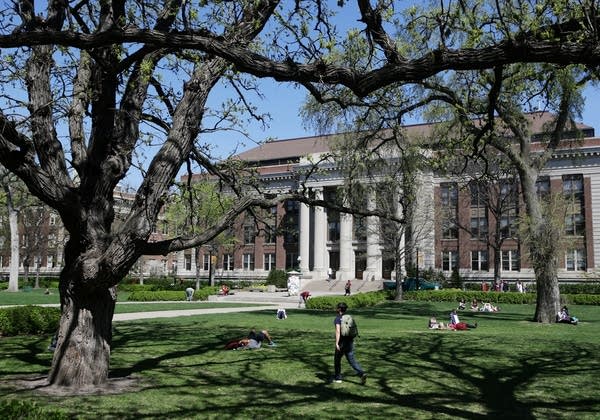On Minnesota campuses, free speech rights up for debate

University of Minnesota students are debating the place of protest when they hear what they consider hate speech.
Jeffrey Thompson | MPR News 2015
Go Deeper.
Create an account or log in to save stories.
Like this?
Thanks for liking this story! We have added it to a list of your favorite stories.


